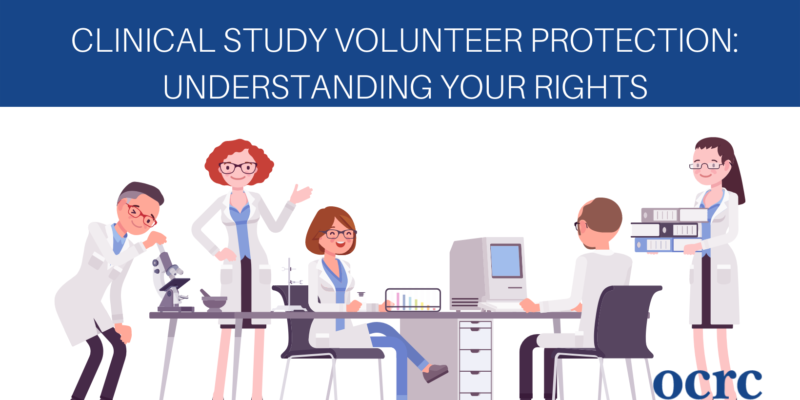
Medical research innovations and scientific breakthroughs are rooted in data that is predominantly obtained in clinical trials. These important studies provide improved treatment options and help medical professionals treat and prevent diseases and viruses. The outcomes of clinical trials have the potential to change millions of lives, but without the help of clinical study participants, clinical research would not exist as it does today.
There are several opportunities to get involved in clinical research as a volunteer:
ClinicalTrials.gov and CenterWatch.com provide listings for clinical trials which are recruiting participants; your own doctor and/or community hospital may also be involved in clinical trials. Once you find a clinical trial that you are interested in volunteering for, check to see that you meet the inclusion criteria. “Inclusion criteria” refers to the factors that qualify participants for clinical trials, such as age, gender, diagnosis, medical history, etc. Factors that disqualify participants from clinical trials are called “exclusion criteria.”
Once you have decided to join a clinical trial, be sure that you know exactly what it entails.
Regardless of what type of clinical trial you are joining, you are entitled to informed consent through the Patient Bill of Rights, including but not limited to:
As a clinical study participant, you also maintain the right to withdraw from a trial at any point. However, you will want to check with your doctor about any negative side effects that may occur if you are not present for the full duration of the trial.
In addition to the Patient Bill of Rights and informed consent procedures, there are other safeguards which protect the rights and safety of any clinical study participants. The Protocol Review Process ensures that all protocols must be reviewed and approved by an institutional review board before a trial can begin. There is also a Patient Representative. He or she facilitates communication between the patient and hospital. He or she is also readily available to discuss any issues with the volunteer.
Be sure to do your research before joining a clinical trial in order to ensure that you are making an informed decision. As a participant, you will always have the right to know the answers to important questions—you have the right to ask clinical study staff any questions you have at any pointin the process.
The information that you will need about a clinical trial ranges depending on the type of study. Of course, you will want to know the following:
If you would like to know more about participating in clinical research, you can always contact us to inquire about current research volunteer opportunities.
